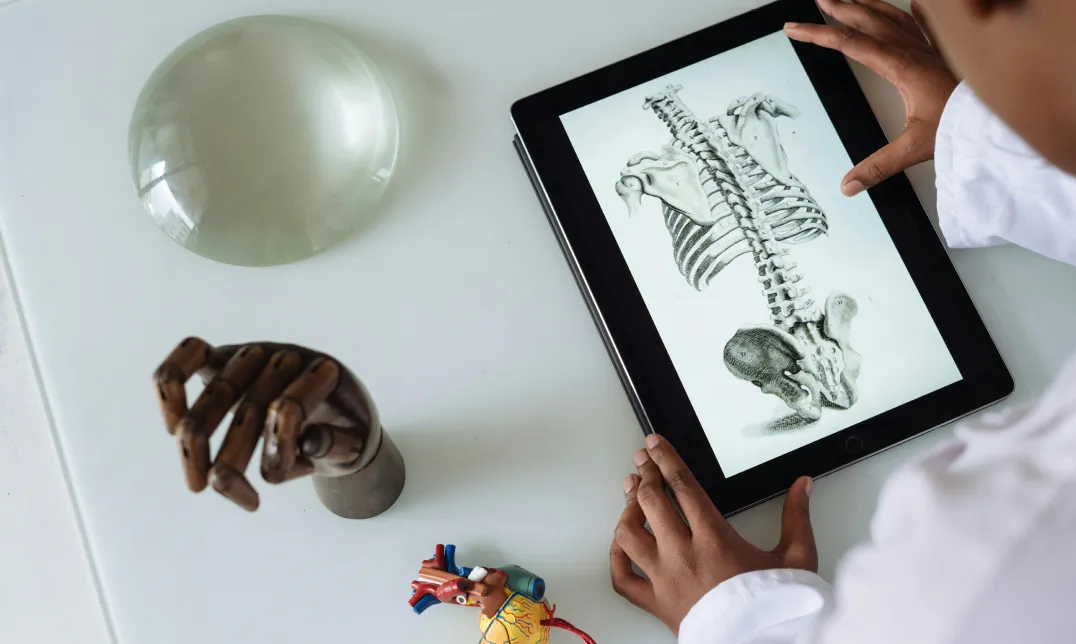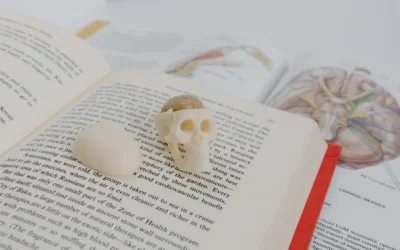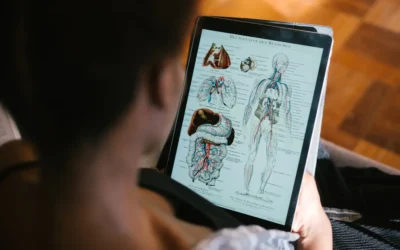A familiar excitement fills your mind as you begin a new school term. ‘This semester will be different’, you tell yourself. This will be the one where you stay ahead of lecture material, take elegant notes and absorb information faster.
As the lectures begin, you scramble to get all the information you hear into your notes and you begin feeling overwhelmed with all the knowledge you’re expected to retain.
Does this situation sound familiar? If so, don’t worry – you’re not alone! Many medical students struggle with note-taking and retaining information during lectures. That’s why we’ve put together these note-taking and study tips for students, so you can overcome these obstacles and achieve academic success.
The Best Way to Take Notes in Medical School
Taking efficient notes is key to managing the demands of medical school. By developing good note-taking habits now, you’ll set yourself up for success throughout your journey to become a doctor. It’s important to consider which note-taking techniques work best for you and make any necessary adjustments.
This article will explore various approaches to note-taking for medical students, ways to organise your notes and tips on how to use your notes to study effectively.
1. Determine your learning style
First, whether you’re trying to learn how to take notes for law school, medical school or any other academic programme, it’s crucial to understand that every student has their own preferred method of learning. The key to success is finding the approach that works best for you.
Some students are visual learners and learn better through reading (and re-reading) notes. Other students are audio learners and may benefit more from carefully listening to a lecturer rather than frantically writing down notes.
Some students prefer taking notes on their computer, which helps you get information down faster, while others prefer taking notes on paper, which aids in processing information.
Try to understand your own learning style so you can play to your strengths. If you find yourself barely recollecting what a lecturer said or feeling that your notes are poor quality, reflect on how you could change your response during lectures.
2. Use narratives in your notes
A useful way to process new information in a lecture is to construct a narrative to sit alongside the facts.
For instance, when learning about the mechanisms of cell reproduction, imagine the many steps involved as cells replicate their deoxyribonucleic acid (DNA) strands to physically split themselves into two halves. Then, when a teacher provides new information, such as a certain protein helps the nucleus divide DNA strands, you can easily orient this new fact within the narrative of knowledge you already know. Without a way of conceptualising new information, a lecture can quickly become a flood of meaningless facts.
As you gain more medical knowledge, you’ll encounter a variety of narrative systems. A molecular example is our body’s immunological response to a bacterial infection, which follows a repeatable and predictable series of events, like a sports team running a tactical play. Similarly, medical researchers have designed mathematical models to tell the narratives of how our kidneys remove waste from the bloodstream in the nephrons, as well as how nerve cells in the brain communicate with one another.
Developing a keen imagination will help you take notes faster and process new information effectively.
3. Stay organised
There are a variety of techniques to help organise your medical school notes. One helpful approach is to colour-code words. For instance, when learning about human anatomy, you could write new technical terms in blue, anatomical features in red, important details in black, and general information in pencil. A colour-coded system can help you to recollect your thoughts and notice important facts faster during revision.
Other ideas include underlining or circling important details. You can even edit your notes as you go through them after the lectures, adding these features as you absorb the content more deeply.
Make the Most of Your Medical School Notes
Once you’ve taken notes, you may wonder how you can make the most of them. One approach that some students may find helpful for memorising notes faster is to distil the key points of every lecture into shorter lecture outlines. You can then memorise these outlines to grasp the crucial ideas from every lecture. Once you’ve memorised the basics, you can then connect the details with the big ideas.
For instance, in neurology lectures, one could first summarise the key parts of the brain and their general functions. With this framework, one could then go through the notes again and learn the specific proteins and anatomical structures associated with each brain region.
Helpful techniques to re-enforce your network of knowledge include testing yourself with cue cards and utilising apps that help you focus on studying. Remember, there is no ‘right’ way to take notes. The key is to help yourself learn new knowledge, so explore the techniques that work best for you.

By Lunan Zhao
Lunan is a medical student in Canada and a visiting English student at Mansfield College, University of Oxford. He is particularly interested in medical humanities, social medicine, public health and knowledge translation. In his free time, he enjoys exploring the distinct ways that metaphors shape both our literary worlds and scientific imagination, and loves going for jogs.





